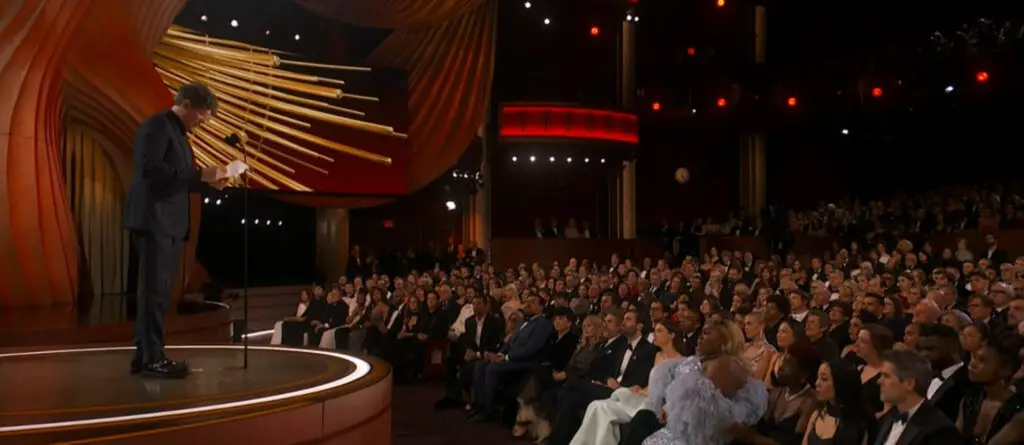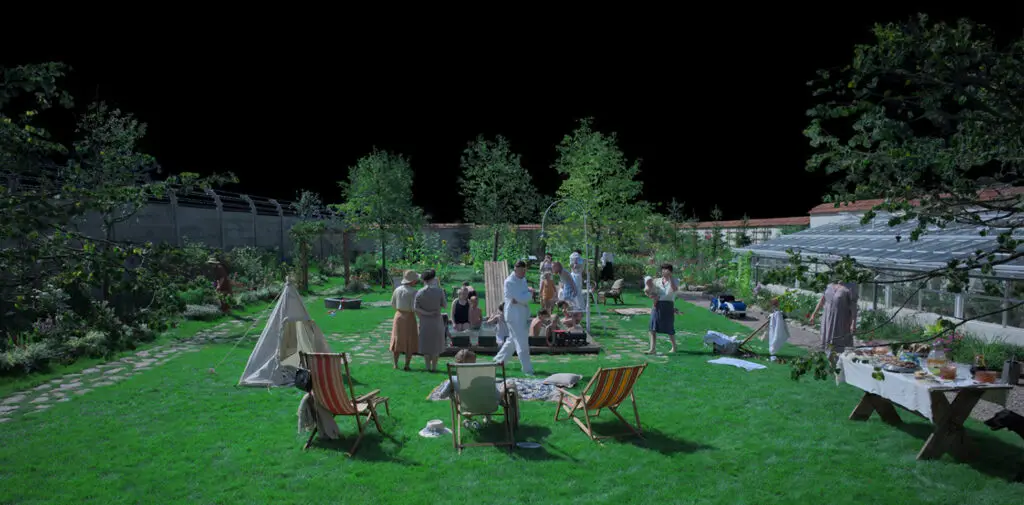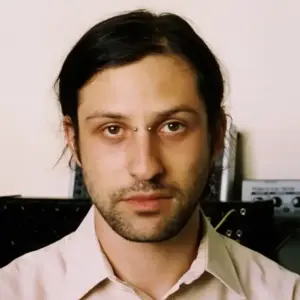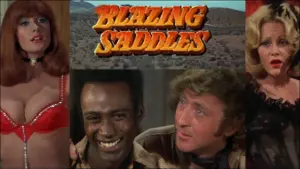Of directors whose work began in my lifetime, I can count on one hand those I esteem as highly as Jonathan Glazer.
Glazer’s background is in music videos, directing memorable pieces through the 1990s for UK royalty like Radiohead, Massive Attack and Blur. His feature debut came in 2000 with Sexy Beast, a phantasmagoric take on the British crime epic which garnered Ben Kingsley an Oscar nom. Birth’s moody fantasy followed in 2004, in which Nicole Kidman takes the role of a New York WASP whose doorman’s 11-year-old son presents himself as her reincarnated husband. Under the Skin, a stylish and nearly silent thriller featuring Scarlet Johansson as an alien succubus dressed for a night on the town in rural Scotland, would not come until 2013.
All three rate as modern classics. They are wildly different in theme, tone and style. Their throughline is excellence of craft. Whereas Sexy Beast recouped its modest budget, the other two both lost money, but one gets the impression that financial backing is not the reason Glazer takes so long to produce a film. He wants to get it right. It was another decade before the release of The Zone of Interest, his loose adaptation of a novel by Martin Amis, which hit the festival circuit in 2023, with a limited theatrical release that December.
Zone stars Christian Friedel and Sandra Hüller as Rudolf and Hedwig Höss, the real-life commandant of Auschwitz and his wife, respectively. In 1940 when Höss received his commission, he and his family moved into a large comfortable home which shared an exterior wall with the death camp. The film takes place in 1943 after Hedwig has expertly nested in their new digs, planting a beautiful garden and making a pleasant and pastoral home with the help of some Jewish serving girls from the camp. When Rudolf is not busy with his administrative duties, the family spends long afternoons lazing along the riverside and taking walks through the sunlit woods.
On the other side of the concrete wall, a pall of black smoke hangs in the air. The shouting of guards and clanking of machinery can distantly be heard. At night, the ovens light the sky with their red glow.
The film opens on two minutes of black over a brewing cacophony. What follows is virtually plotless: an almost documentary-like portrait of an upper middle class family and the quiet strain that lies beneath.
The key point of tension comes early on, when Rudolf is promoted to deputy inspector of concentration camps and told to uproot and move to Oranienburg, in Germany. Hedwig is devastated. She does not want to leave. She has built a beautiful home for herself and her children, and achieved a material excellence which she can lord over her mother.
Aside from this single point of movement, we simply spend time with the Höss family. Rudolf hears the ingenious logistical workaround for a new crematorium. Hedwig gives her mother a tour of the garden. The officers’ wives sort through the confiscated belongings of deported prisoners; Hedwig gets a nice fur coat. The flowers are tilled with ashes from the camp. While playing with his children, Rudolf finds human remains in the river.
All of this is shot with a classicist’s eye for movement and direction, yet feels modern and oddly voyeuristic. Glazer and his DP, Łukasz Żal, chose not to be present on set. Ten cameras were arranged around the environment, and the footage was monitored remotely. “We needed to retreat as a unit,” Glazer told Vanity Fair, “not to be present in the filming, to watch the characters in their environment – which had to be completely credible to them in 360 degrees.” The result is as disconcerting as it is mundane.
Yet in some ways, the most memorable aspect of the film is the sound. The low din of the camp is placed so expertly in the mix, and is so unceasing, it is difficult not to feel like you’ve gone mad. There are other cues – and some bold aesthetic moves I won’t spoil here – that are equally daunting and memorable. For the score, if you can call it that, Glazer has again teamed with Mica Levi, with whom he had previously worked on Under the Skin. Levi has crafted a mutated and diabolical thing to which words will do a disservice. It is hard to know where the sound design ends and the score begins, which is about the grandest compliment I can give to either.
Friedel is convincing as a man being eaten; casual, anxious, an unnamable cancer growing within. Hüller, who had a pretty stellar year between Zone and the excellent Anatomy of a Fall, delivers a distant and searing performance. She is at turns sympathetic and disgusting; a monster and a mother.
What is brilliant about The Zone of Interest is, of course, what we never see. It is an idea so brilliant that it is difficult, in retrospect, to understand why it’s never been done before. Finally we have a film about true human horror that does not rely upon the maudlin tropes of other historical tragedies. There are no weeping families starving in their pinstripe suits. This is very openly, and very simply, a film about how we ignore things. How the comfort of our lives is built upon mounds of the invisible dead.
Because of this, The Zone of Interest is not only a film about WWII and the Holocaust, but a film about all conflicts waged by the industrial world.

When the Academy Award nominations were announced this past year, I was glad to see Zone on the list for Best International Feature. Anatomy of a Fall was not put forward by France due to some institutional drama, and I thought that Glazer, who has traditionally been ignored by the Academy, might have a chance. I did not know Glazer’s political views – I knew he was a Jew, that was all – but the tenor of Zone made me think he might have some things to say.
The Zone of Interest was, of course, written and produced before the events of October 7. Despite what some online discourse before the awards may have indicated, Zone is not “another Holocaust movie” made as propaganda by Zionist Hollywood. It is an earnest film about one of modern history’s great atrocities. That said, given that the conflict in Israel had again flared to open war by the time of the film’s release, it seemed difficult to accept an award for the feature without making mention of the situation. Zone did win, and Glazer did have some things to say.
His brief speech, which acknowledged tragedies on both sides, has been misquoted across the internet and elicited vitriol from a litany of Zionist groups. I will quote it in full here:
“All our choices we made to reflect and confront us in the present, not to say ‘look what they did then.’ Rather, ‘look what we do now.’ Our film shows where dehumanization leads at its worst. It shaped all of our past and present.
“Right now, we stand here as men who refute their Jewishness and the Holocaust being hijacked by an occupation which has led to conflict for so many innocent people. Whether the victims of October 7 in Israel or the ongoing attack on Gaza – all the victims of this dehumanization, how do we resist?
“Alexandria Bystroń-Kołodziejczyk, the girl who glows in the film as she did in life, chose to. I dedicate this to her memory, and her resistance. Thank you.”
If I’m going to broach this topic in a movie review, I will give a small amount of background on myself and my family. I am a non-practicing Ashkenazi Jew. I was raised in a Reform synagogue. Both my parents are Ashkenazi with ancestry from eastern Europe; mostly Russia, modern-day Ukraine, Romania and Poland. To my knowledge, I do not have close relatives who were victims of the Holocaust. They had fled from the Bolsheviks, the Cossacks, or other forces and shifting terrains before the rise of the Third Reich.
I have visited Israel on several occasions. Once when very young with my family, once when I was 11 with a group from my temple, and once in 2017 as part of a larger European tour to play a show in Tel Aviv.
I was raised to believe that Israel was the storied home of the Jews, gifted to us by the international community as consolation for the crimes of the Holocaust. By the time I visited as an adult my perspective had changed. I had come to see Israel for what it is: a bastion of Western interests propped up by blood and American dollars. That said, I did not have ethical qualms about playing a show there. I do not believe the average young Israeli citizen is any more at fault for the crimes in Gaza than the average young American citizen was at fault for the crimes in Iraq. There are, of course, monsters who support both of those wars.
To me, it is heartening to see Jewish voices speak out against the crimes in Palestine. Of course an Oscars speech will not change the world. But it is a larger platform than most. People can use complicated historical arguments to justify all kinds of things; it was the Ottomans, the Brits, this, that and the other. Ultimately it is monstrous human suffering that I am opposed to, and I don’t really care who is perpetrating the crime.
For those carping about anti-Semitism, yes, it exists. I see it too. If your concern is truly about anti-Semitism, I would spend less time worrying about the deranged demands of a dysfunctional ethno-state, and more about the enduring consequences of inextricably tying the modern Jewish identity to an unspeakable pogrom unfolding very publicly before the world’s eyes.
I thank Jonathan Glazer for his speech, and for his film. The Zone of Interest understands all this. It takes all this into account. It is a film about the specter of what exists on the other side of the wall.















